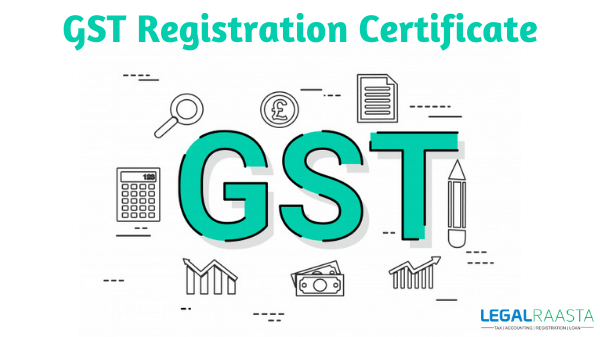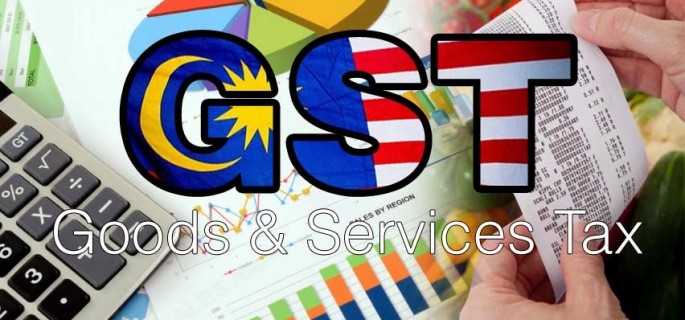Choosing CFO Account & Services for GST Registration in Singapore: What You Need to Know
Choosing CFO Account & Services for GST Registration in Singapore: What You Need to Know
Blog Article
Navigating the Intricacies of GST Registration: A Comprehensive Overview for Entrepreneur
Browsing the intricacies of GST registration can be an overwhelming task for many entrepreneur, as it involves a myriad of policies, regulations, and processes that must be adhered to. With the ever-evolving landscape of tax obligation regulations, ensuring conformity and comprehending the details of GST enrollment is essential for the seamless procedure of any kind of organization. From establishing qualification and collecting the essential documents to maximizing procedures for optimal efficiency, this comprehensive guide aims to offer entrepreneur with the expertise and tools required to navigate the intricacies of GST enrollment effectively.
Qualification for GST Registration
Business owners need to satisfy particular standards to establish their qualification for GST enrollment. In basic, companies with an annual turn over surpassing a specific limit are called for to register for Item and Provider Tax (GST)
In addition, organizations that are registered under any kind of previous tax obligation regimen, such as VAT or service tax obligation, are typically needed to shift to GST enrollment. Understanding these requirements is vital for local business owner to make sure compliance with the regulation and prevent any kind of penalties or lawful issues. It is a good idea for entrepreneurs to seek advice from tax obligation professionals or lawful experts to examine their qualification for GST enrollment precisely. By adhering to the required criteria, companies can efficiently navigate the complexities of GST registration and operate lawfully within the tax obligation structure.
Records Required for Registration
To complete the GST enrollment procedure, businesses need to collect and send a detailed set of documents. The essential files needed for GST enrollment generally consist of evidence of business enrollment or incorporation such as the Certification of Unification, collaboration deed, or any kind of other enrollment certificate.
Furthermore, specific documents associated with the nature of the company, such as a checklist of products or services supplied, HSN codes for items, and SAC codes for services, may be called for - Why choose CFO Account & Services for GST registration in Singapore. It is essential for services to make sure that all papers sent are accurate, current, and in the prescribed layout to avoid any hold-ups or issues in the GST registration process
Process of GST Enrollment
Having actually put together the requisite documentation, organizations proceed to start the GST enrollment procedure by involving with the online website marked for enrollment. This on the internet website is the Goods and Solutions Tax Network (GSTN) website, which acts as the key system for all GST-related tasks in India. Upon accessing the site, services are required to complete the GST enrollment type with exact information regarding their service activities, turn over, and various other relevant details.
Once the kind is finished Why choose CFO Account & Services for GST registration in Singapore and submitted on the site, the GSTN verifies the details supplied by the company. The applicant may be called for to give extra details or clarification if any kind of discrepancies are located. Complying with effective verification, a GST registration certificate is issued to business entity. This certification has a distinct Product and Services Tax Recognition Number (GSTIN) that is utilized for all GST-related transactions.
It is essential for services to guarantee that the details given during the GST enrollment procedure is precise and up to date to stay clear of any type of prospective concerns or delays in getting the GST enrollment certificate.
Comprehending GST Conformity

Businesses require to be conscious of the different GST compliance requirements based on their turnover, nature of services or items, and the states in which they operate. It is critical to stay updated on any kind of modifications in GST regulations and regulations to stop any non-compliance concerns.
Non-compliance with GST guidelines can result in substantial penalties, penalties, and even legal consequences. Organizations need to spend time and resources in enlightening themselves and their team on GST conformity. Seeking specialist assistance from tax obligation consultants or professionals can additionally assist in navigating the complexities of GST conformity and making sure that organizations operate within the lawful structure.

Tips for Optimizing Service Workflow
For improved performance and performance in service procedures, strategic preparation and structured processes are important components. One tip for enhancing business operations is to take advantage of modern technology efficiently (Why choose CFO Account & Services for GST registration in Singapore). Implementing the appropriate software application services can automate repeated jobs, improve accuracy, and enhance general workflow performance. Additionally, conducting regular efficiency evaluations and gathering feedback from employees can give valuable insights for recognizing bottlenecks and locations for renovation.
One more crucial aspect is prioritizing jobs based on their importance and target dates. By creating a clear power structure of jobs and establishing sensible timelines, companies can make certain that important activities are completed on schedule. Fostering a culture of open interaction and collaboration amongst group participants can lead to raised efficiency and innovation.

Final Thought
In conclusion, navigating the complexities of GST registration requires a clear understanding of eligibility standards, essential records, enrollment processes, and compliance demands. By adhering to these standards and enhancing service procedures, service proprietors can guarantee smooth procedures and conformity with the GST policies. It is vital for businesses to stay enlightened and updated on GST regulations to prevent any type of charges or legal issues.
The crucial files needed for GST registration commonly include proof of business enrollment or unification such as the Certification of Incorporation, collaboration act, or any type of various other registration certificate.Having actually assembled the requisite documents, services continue to initiate the GST registration process by engaging with the on-line portal marked for enrollment. Upon accessing the site, organizations are needed to fill out the GST registration form with exact details regarding their organization tasks, turnover, and various other relevant info.
In order to keep adherence to GST policies and stay clear of fines, organizations have to focus on recognizing GST conformity. By sticking to these guidelines and maximizing organization operations, business owners can make sure smooth operations and conformity with the GST straight from the source policies.
Report this page